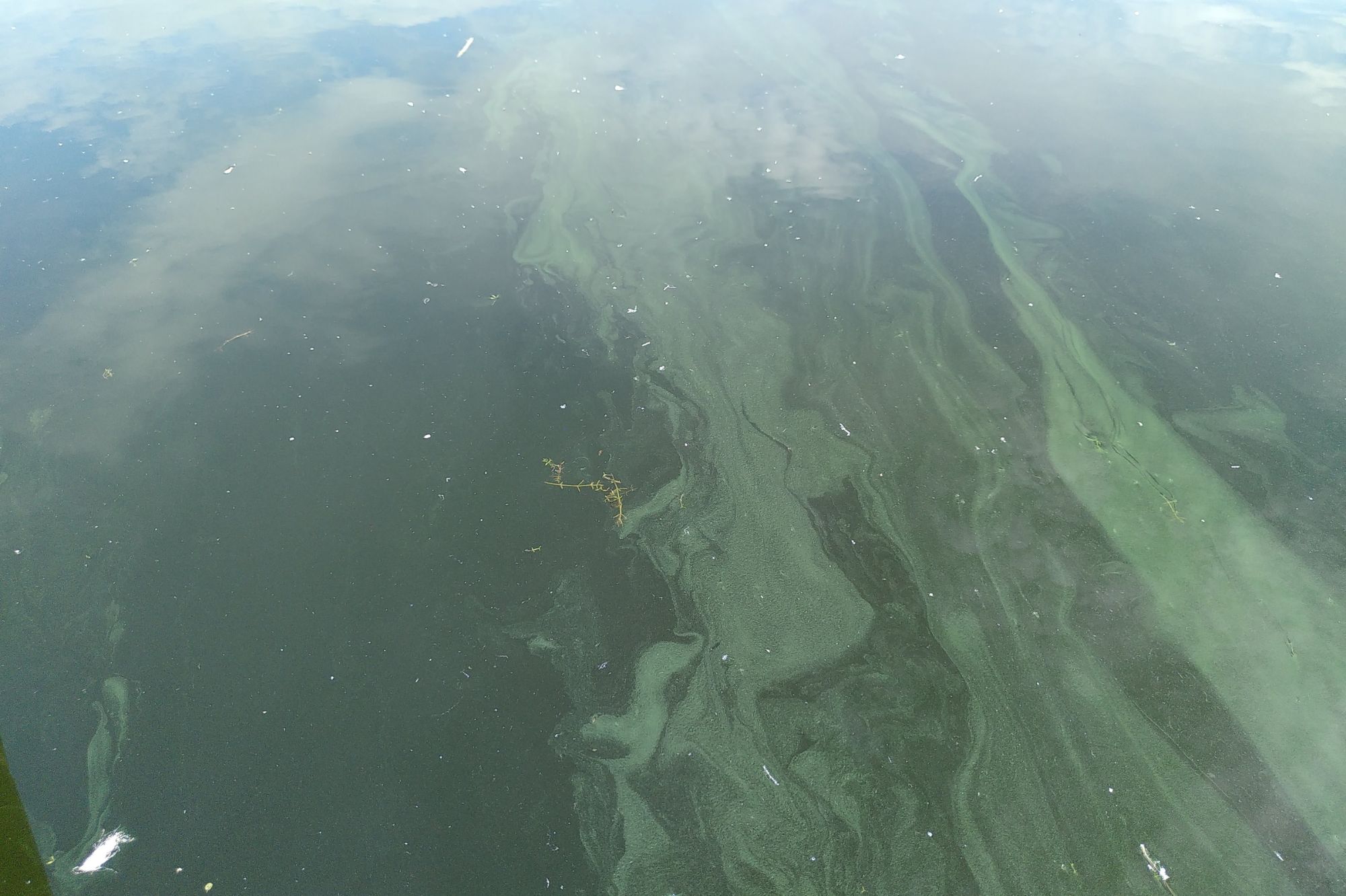Story
New project funded to boost early detection of algal blooms for cleaner, safer drinking water
24 May 2025
It was announced this week that Ofwat, the Water Services Regulation Authority for England and Wales, has awarded funding for the PEDAL project: ‘Prediction and Early Detection of Algal blooms in lakes and reservoirs’, to keep water safer and cleaner for everyone.

Image caption: Cyanobacteria are a common occurrence at Roadford lake – an artificial reservoir fed by the River Wolf – in West Devon. During calm weather these blooms are sometimes seen to accumulate at the water surface. Image credit: Professor Stefan Simis.
This project is one of 16 solutions awarded a share of £42 million this week in the water regulator’s latest innovation competition. Each solution is committed to fostering innovative approaches to water and waste management.
The 16 winning projects involve 15 water companies working with 70 partners, and the PEDAL project specifically will see South West Water working alongside the University of Exeter, Centre for Resilience in Environment, Water and Waste (CREWW) and Plymouth Marine Laboratory, and other academic and industry collaborators nationally and abroad.
What causes algal blooms?
Algal blooms occur when environmental conditions – like warm temperatures, sunlight, rainfall, and nutrient-rich runoff from agriculture or other land use – promote growth of naturally present algae or cyanobacteria at rates faster than they disappear, for example through grazing by other plankton and fish.
These blooms happen in both freshwater and marine environments worldwide, sometimes lasting for weeks and even becoming visible from space.
The effects of algal blooms
While many blooms are harmless, some involve species that:
- produce toxins harmful to fish, shellfish, and humans,
- reduce oxygen levels in the water,
- block sunlight needed by underwater plants, or
- smother aquatic habitats.
Harmful Algal Blooms (HABs) can carry serious ecological, economic, and health impacts – and their frequency is expected to rise with climate change, for example due to more frequent heavy rainfall.
The PEDAL project aims to forecast and boost the early detection of algal blooms before they take hold, to protect nature, reduce water treatment costs and keep water safe and affordable for everyone.
Project lead at PML, Professor Stefan Simis said:
“We are very excited to be a part of PEDAL, unlocking the benefits of high-resolution satellite observation of water quality for the water industry. Pressures on our drinking water supplies are rising due to climate change and we know that no single monitoring strategy can answer the need to respond as quickly as we would like.”
“PEDAL will combine satellites, drones and observations by citizen scientists with predictive modelling to pinpoint likely issues to enable quicker monitoring and mitigation response, with the ultimate aim to prevent water body closures altogether in future. Our role at PML will be to deliver a consistent observation strategy using radiometric measurements, or water colour, as this is observable across spatial scales. Interpreting water colour in terms of algae biomass has long been our focus, and we hope that by combining various observation platforms we can deliver actionable information on the development of cyanobacteria (blue-green algae) blooms in our lakes and reservoirs.”
David Black, CEO of Ofwat said of the funding announcement:
“Water underpins our society and economy, and the water sector faces a range of challenges requiring urgent solutions. The Ofwat Innovation Fund was established five years ago to incentivise the water sector to collaborate with partners across industry, charities, and academia to accelerate the pace of transformation and create lasting benefits for customers and the environment.”
“The level of ambition of this year’s winners – including deploying robots, drones, satellites and state-of-the-art artificial intelligence – is remarkable. The 16 winning projects involve 15 water companies working with 70 partners – from world-class universities to engineering powerhouses, environmental charities and even NASA. We are supporting these projects to prove their impact so that they can be scaled, not only here in England and Wales, but exported around the world as a driver of economic growth”.
